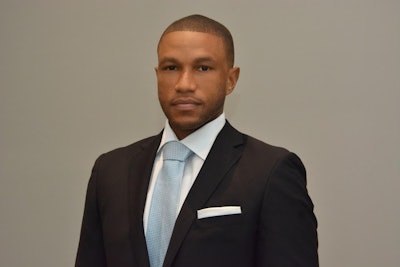Alpha Kappa Alpha Sorority Inc. sisters and leaders in their respective arenas, Congresswoman Frederica Wilson and Dr. Glenda Glover have structured a groundbreaking partnership that will open the doors of higher education opportunity to students from Miami-Dade, Broward, and Duval Counties in Florida. Glover, president of Tennessee State University (TSU), has awarded full scholarships to twelve students from the 5000 Role Models of Excellence Project, a dropout prevention and mentorship program for boys and young men of color that was founded by Wilson in 1993.
This Florida to Nashville higher education pipeline is not new but is one that is being reinvigorated and reinforced with this new effort. Wilson herself went to Nashville to attend Fisk University after graduating from Miami Northwestern Senior High School. TSU is continuing to show that institutions of higher education can be hubs for providing pathways to access post-secondary educational instruction, connect students with emerging economic opportunities, and inspire them to fulfill their purpose. The university is rapidly asserting itself not just as a bedrock institution for students within the state of Tennessee but also as a national academic destination as it has been in years past for those who want to gain the training to maximize their potential.
 Dr. Marcus Bright
Dr. Marcus BrightThis new partnership also continues to expand on the 5000 Role Models of Excellence Project’s mission to disrupt the school-to-prison pipeline by creating new pathways of opportunity through higher education. This group of 5000 Role Model students includes the valedictorian of Miami Northwestern Senior High School, George Pickens IV, who chose TSU over the University of Miami, Howard University, Duke University, and Harvard University among others. Pickens will be a part of a new initiative that targets future Black male doctors in a joint arrangement with Meharry Medical College.
Pickens reflected on his decision to go to TSU by saying, “I didn’t choose TSU, instead TSU chose me. When making my college decision, I consulted mentors, family, friends, and of course prayed about it. At first it seemed as if the signs were small and I often overlooked them, but as time progressed it became evident that TSU was the best fit for me. I am excited to further my education at a school that stands for service and excellence and is deeply rooted in history.”
Another member of the group, Rodga Laurius from Miami Edison Senior High School, grew up in Miami’s Little Haiti neighborhood and is relishing the opportunity to go into a new environment with the opportunity to pursue a higher education. Laurius received a call in April about the opportunity to go to TSU and was shocked. He said that he was “thrilled and excited to have this life changing opportunity. I get a chance to go to school outside of the state and meet new people and have new experiences.”
The continuation and extension of infrastructures of opportunity like the 5000 Role Models of Excellence Project is an important step towards reducing the number of disconnected youth. Disconnected youth are those individuals between 18 and 24 that are neither working or in school. An overabundance of this disconnected population translates into a massive amount of wasted potential. This underutilized talent is laid to waste in large part because students don’t receive enough direction and affirmation to see it through to its full development.
An increased level of intentionality is needed to ensure that support for young people does not cease after they leave high school. Strong transfers from one support system to another must take place to prevent students from falling through the cracks. One system of institutional support does not have to totally replace another but can build upon and compliment the previous one. The positionality of support systems for these students may change with TSU in this example becoming the primary one, but the 5000 Role Models of Excellence Project is set up to continue to be active and impactful in the lives of the students who are matriculating to TSU.
The explosion of virtual meeting spaces like Zoom and Microsoft Teams enables continued connectivity despite groups of people not being in the same physical location. Cohorts like this group of students who are headed to TSU can connect with other cohorts who may be engaging in similar processes in other parts of the country. As institutions of higher education prepare to pivot back to a predominately in-person learning environment, elements of the virtual educational experience that was accelerated during the COVID-19 pandemic can be carried forward to create an even more robust scholastic program.
These kinds of institutional partnerships can help to turn needed corners into greater avenues of progress that may have been previously blocked by external or internal barriers. TSU President Dr. Glenda Glover and Congresswoman Frederica Wilson have delivered big for these students, and it is a great example for other institutions and organizations to follow.
Dr. Marcus Bright is a scholar and educational administrator.
















